Practice
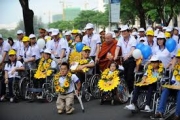
Improving the effectiveness of legal aid to ensure human rights in Vietnam
(LLCT) - Many people experience difficulty in finding lawful representation because of mental or physical disabilities or because their income is too meager to afford a lawyer when they encounter law enforcement and are arrested, detained, investigated, or prosecuted. Those in such unfavorable circumstances, therefore, are in desperate need of appropriate legal aid provisions so that they know their rights and so that these rights are adequately protected against any violation.
Causes of land conflicts in Vietnam
(LLCT) - Management of land conflicts is one of the important tasks of the Party, State, and the entire society in order to maintain political stability, social safety and civilian security, it is the key to achieve developmental goals. Since 1997, when the “hot spot” issue occurred in Thai Binh province, land-related issues have been the main type of social conflicts in Vietnam, hence a focus of public attention. Of Vietnam’s politico-social hot spots, 70 percent of them are primarily caused by land conflicts. It is noteworthy that this percentage has remained almost the same over the last two decades. Obviously, causes of social conflicts and politico-social hot spots in the country have not been accurately identified.
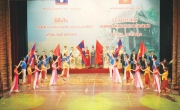
The special Vietnam - Laos relationship in the renewal period
Vietnam and Laos officially established their diplomatic relationship on 5th September 1962. The foundation of today’s traditional friendship and the special solidarity and comprehensive cooperation between the two countries was laid by President Ho Chi Minh, President Kaysone Phomvihane and President Suphanouvong, and nurtured by generations of leaders of the Parties, States and the two nations. They have been increasingly strengthened and developed over nearly a century, bringing peace, independence and happy and comfortable life to the people of the two countries. Following the complete victory of their resistance wars against foreign invaders, Vietnam and Laos singed the Friendship and Cooperation Agreement (18th July 1977), which further asserted the determination of the leaders and people of the two countries to continue consolidating their traditional friendship relationship, special solidarity and comprehensive cooperation in the new era - the era of national construction and defence.
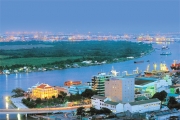
The world economic crisis and its challenges to poverty reduction in Vietnam
Today’s socio-economic context requires us to consider the issue of poverty reduction in an overall model, including sustainable economic growth and social progress and environmental protection. In Vietnam, the world economic crisis has still left severe consequences to its economy, in which the poor remain the most vulnerable group. For the success of poverty reduction in the country according to the UN’s millennium goals, Vietnam has to face much bigger challenges. Overcoming these challenges depends largely on the Vietnamese government’s policy capacity.
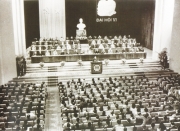
The ruling Communist Party’s capability and political responsibilities in self-criticism, criticism and correcting imperfection
Self-criticism and criticism is one of the organizational and operational principles of an innovative revolutionary party put forth by V. I. Lenin. It is also the constructional and developmental law of a genuine revolutionary Party. President Ho Chi Minh, the founder and leader of the Communist Party of Vietnam, emphasized many times this fundamental principle in Party building and in the implementation of the Party’s leadership.
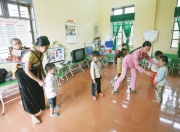
The relation between economic growth and social development based on advanced and fair principles
Combining economic growth with social development on the principle of progression and fairness are seen as two of the pillars of the rapid and sustainable development that many countries around the world are keen to reach. However, in fact, this is a difficult problem that it is not any times, anywhere people can find the adequate answers.
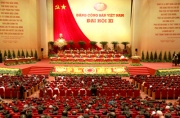
Renewing the Party's theoretical work
The first theoretical Conference titled "Some major theoretical - practical issues in the process of promoting renewal in Vietnam and Laos" between the Communist Party of Vietnam and the Lao Revolutionary People's Party took place on 10th January 2012 in Hanoi. At the conference, PROF., DR. TA NGOC TAN, Member of the Party Central Committee, Director of the Ho Chi Minh National Academy of Politics and Public Administration, and Vice Chairman of the Central Theoretical Council presented a speech titled "Renewing the Party's theoretical work". The Political Theories Review is honored to introduce the speech of PROF., DR. TA NGOC TAN.

Further renovating and perfecting Vietnam's present political system - some theoretical and practical issues
Vietnam's cause of national innovation has been carried out for more than one fourth of a century, and by the 12th Party Congress, It wil have been exactly 30 years of age. During that length of time, the innovation has taken place not only in economics but also in the political system in order to ensure unity and synchrony between economics and political renewal. Under the Party's leadership, Vietnam's people have gained many historic achivements. They include important achivements in the building of the socialist democracy and Rule of State, in Party building and rectification, as well as in the renewal and improvement of the operational quality of the political system.
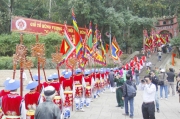
The relationship between culture and economics
After all, humans are the most precious natural resource and asset. The Vietnamese man is the quintessence of Vietnamese culture, thus the process of building the culture of Vietnam is also the implementation of the human strategy, building and developing of human resources – the most important endogenous strength for development.
Journal Archives
Journal Archives
Media
Photo Gallery
Contact us

 Practice
Practice


